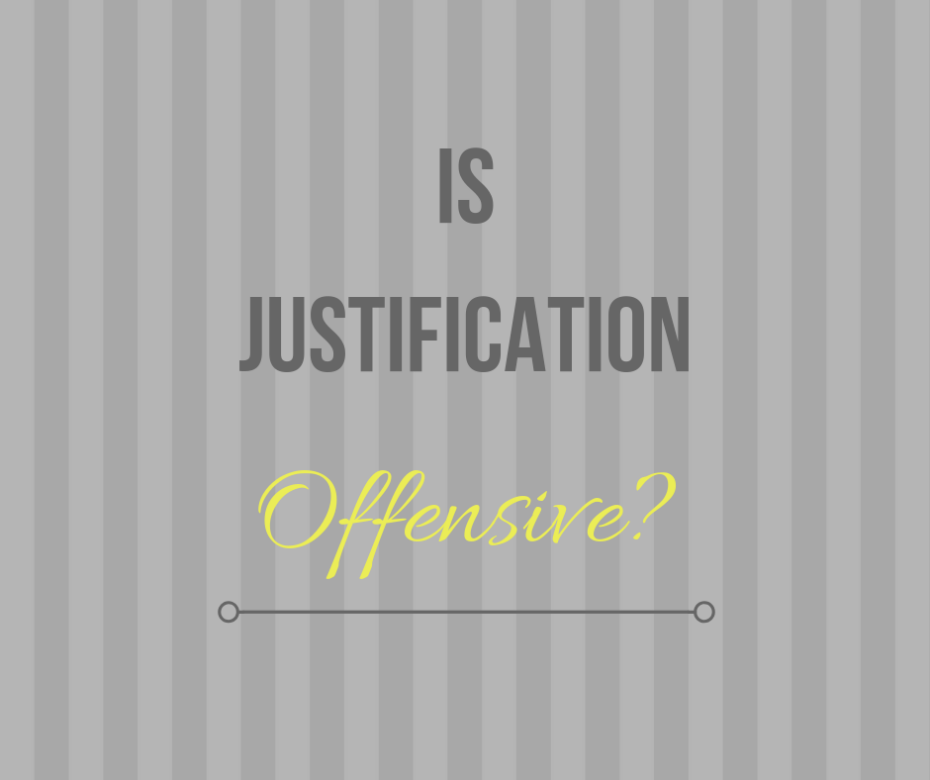I have been preaching through Galatians. We just finished chapter 2. I was struck by v 16 and how emphatically Paul insisted that a man is not justified by works of the Law, but through faith in Christ:
knowing that a man is not justified by the works of the law but by faith in Jesus Christ, even we have believed in Christ Jesus, that we might be justified by faith in Christ and not by the works of the law; for by the works of the law no flesh shall be justified (Gal 2:16).
In that single verse, Paul emphasized that justification was by faith three times, and denied that justification is by works three times.
I could practically hear Paul pounding on the pulpit. “Not by works! Not by works! Not by works!”
He couldn’t have been clearer, right?
Why, then, do so many people—even so many “Christians”—both in Paul’s day and ours, deny that doctrine? Why do they hate it? (And I don’t think that’s putting it too strong!)
There are two reasons.
First, they hate the doctrine of justification because of what it means about their standing before God. If you need to be justified, that means you aren’t justified already, but rather, condemned already (cf. John 3:18). That isn’t the rosy picture that most people have of God. Nor is it the rosy picture they assume God has of them! We’re optimists at heart. Most Americans believe in heaven and expect to go there when they die. They hate being told that’s not the case.
Second, they hate the doctrine of justification because of what it means for their works and religion. Salvation by faith alone shows that God considers their very best efforts to be absolutely worthless for eternal salvation. No one likes being told they aren’t good enough—especially Americans. One of the cultural differences I noticed when I moved to the U.S. is the obsession with small tokens of achievement. Americans love trophies and medals and rewards. You get them for everything! You get them if you win or if you just show up. You get them if you graduate at the top of the class, or if you barely pass. You get them if you were shot, or if you avoided getting shot. My Bing search engine has a little medal icon in the top right-hand corner telling me that I’m a web-browsing winner! People expect to be celebrated…even for their mediocrity! That attitude is ingrained in religion, too. Americans assume that God is very impressed with their good works and efforts at being religious—no matter how half-hearted and inconsistent. Hence, they find the idea that salvation is by faith apart from works to be preposterous, if not loathsome.
Although there is only one condition to be saved—to believe in Jesus for eternal life (John 3:16, 36)—it will often take preparation before people are ready to meet it. Not everyone will be ready to believe the promise of salvation right away. I believe my daughter Daphne has believed in Jesus for eternal life. I think she is not parroting back words to me, but really means what she says. But other people will not be ready to believe right away. They have too much spiritual and intellectual baggage. They will often need to become convicted of their sin first, and realize they, too, have fallen short of God’s glory (Rom 3:23), need to be saved (Acts 16:30), and cannot be saved on the basis of their works (Gal 2:16). I had to go through that process before I was ready to believe in justification.
When evangelizing others, we ought to be sensitive to the different ways that God brings people to meet the one condition of salvation. Sometimes it will mean leading someone from hate to hope.


